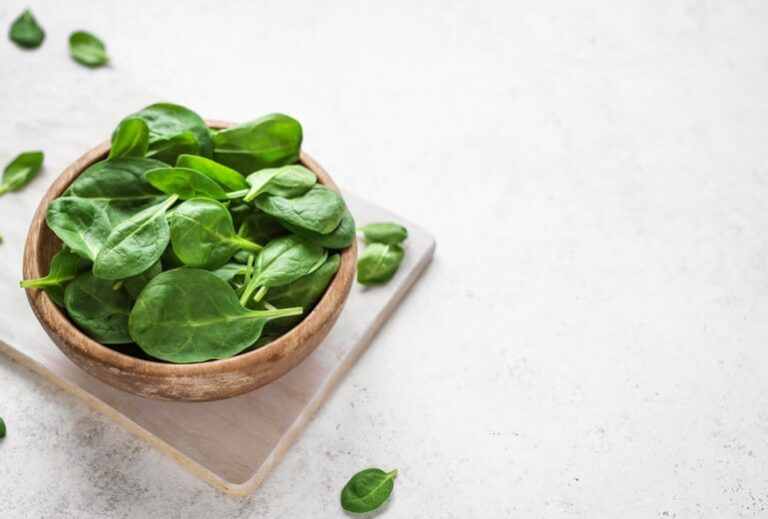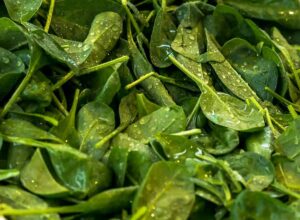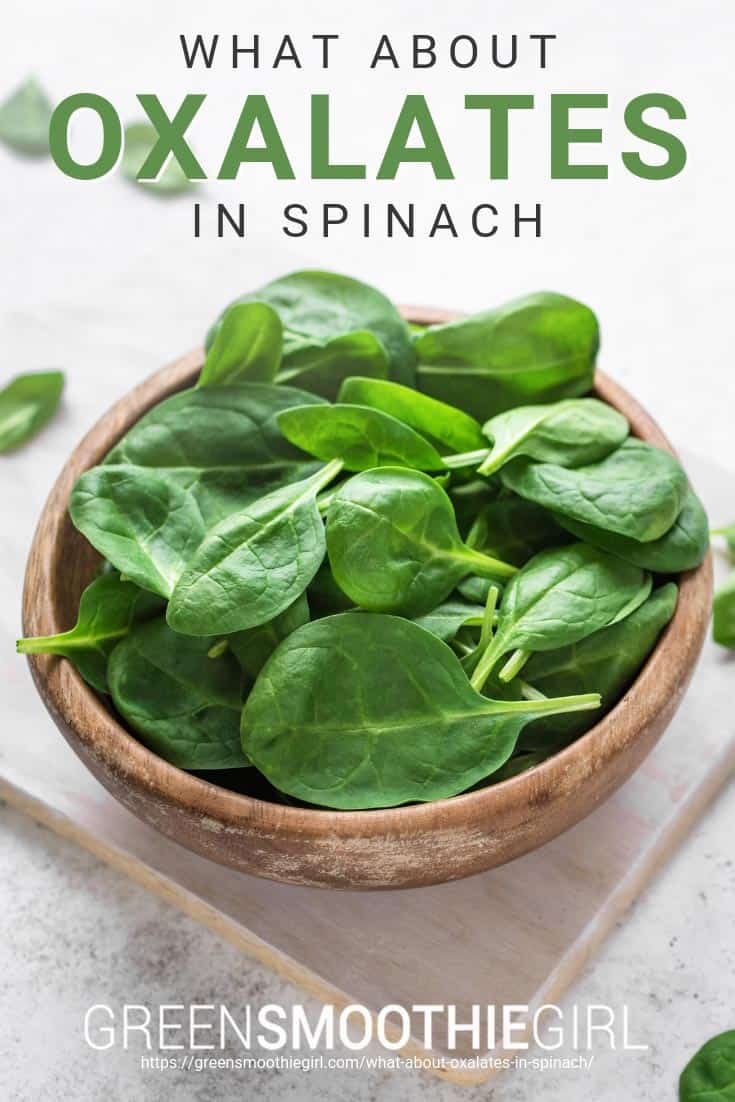What About Oxalates in Spinach?

Dear GreenSmoothieGirl, some people think you should lightly cook your spinach and other greens before eating them. Is it safe to eat them raw? What about spinach oxalate?
In this article:
- It’s Safe to Eat Raw Oxalate Foods
- The Truth About Dietary Oxalates
- Who Should Stick to Low Oxalate Diet Recipes?
Spinach Oxalate | Why You Need Oxalate Foods
It’s Safe to Eat Raw Oxalate Foods
Answer: This is an excerpt from Ch. 1 of my book, 12 Steps to Whole Foods. It is both safe and good to eat spinach raw, which I have done every day for 15 years. Cooking, by any method, kills 100% of the greens' enzymes.
Misconceptions About Spinach Oxalates
A popular and growing theory and opinion among those interested in nutrition is that greens (especially spinach) are high in oxalates and should be avoided because oxalates cause kidney stones or gallbladder problems and may interfere with absorption of calcium in the body. Another popular opinion is that cooking spinach renders the oxalates harmless.
The Truth About Dietary Oxalates
In fact, peer-reviewed research reveals that the ability of oxalates to lower calcium absorption is small and does not outweigh the ability of those foods to contribute significant calcium to the diet since spinach is rich in calcium.
A few rare health conditions require oxalate restriction: absorptive hypercalciuria type II, enteric hyperoxaluria, and primary hyperoxaluria. These are not the more common condition wherein kidney stones are formed.
The research is not clear that restricting foods such as spinach helps prevent stones in those who have previously had them. Many researchers believe that dietary restriction cannot reduce the risk of stone formation.
In fact, some foods that were assumed to increase stone formation because of oxalate content (like black tea) have appeared in more recent research to have a preventative effect.

Oxalates in spinach don't change significantly when the leaves are cooked.
You Can’t Significantly Lower the Oxalate Content of Foods
Cooking has a small impact (about 10%) on the oxalate content of foods, with no statistically significant lowering of oxalates following blanching or boiling of greens. It appears that the nutritional advantages of eating raw greens continue to far outweigh any benefit of cooking them.
Who Should Stick to Low Oxalate Diet Recipes?
Two other classes of nutritional compounds, purines, and goitrogens, are found in some leafy greens such as spinach. Eating "excessive" amounts of spinach or cruciferous vegetables (broccoli and cauliflower, for instance) containing these compounds can be a problem for people who suffer from gout, kidney stones, or low thyroid hormone production. These chemical compounds are also found in peanuts, strawberries, soy products, and other foods as well. Lightly steaming these foods may help, as well. However, the literature seems to support that a few weekly servings of these foods are a good idea for almost everyone.
What do you think of the oxalate in spinach? Do you have more questions about what are oxalates? Share your thoughts with us in the comments section below!
Read next: Is Raw Spinach Bad for Me?
 Robyn Openshaw, MSW, is the bestselling author of The Green Smoothies Diet, 12 Steps to Whole Foods, and 2017’s #1 Amazon Bestseller and USA Today Bestseller, Vibe. Learn more about how to make the journey painless, from the nutrient-scarce Standard American Diet, to a whole-foods diet, in her free video masterclass 12 Steps to Whole Foods.
Robyn Openshaw, MSW, is the bestselling author of The Green Smoothies Diet, 12 Steps to Whole Foods, and 2017’s #1 Amazon Bestseller and USA Today Bestseller, Vibe. Learn more about how to make the journey painless, from the nutrient-scarce Standard American Diet, to a whole-foods diet, in her free video masterclass 12 Steps to Whole Foods.
Disclosure: This post may contain affiliate links that help support the GSG mission without costing you extra. I recommend only companies and products that I use myself.

Posted in: 12 Steps To Whole Food, Whole Food













